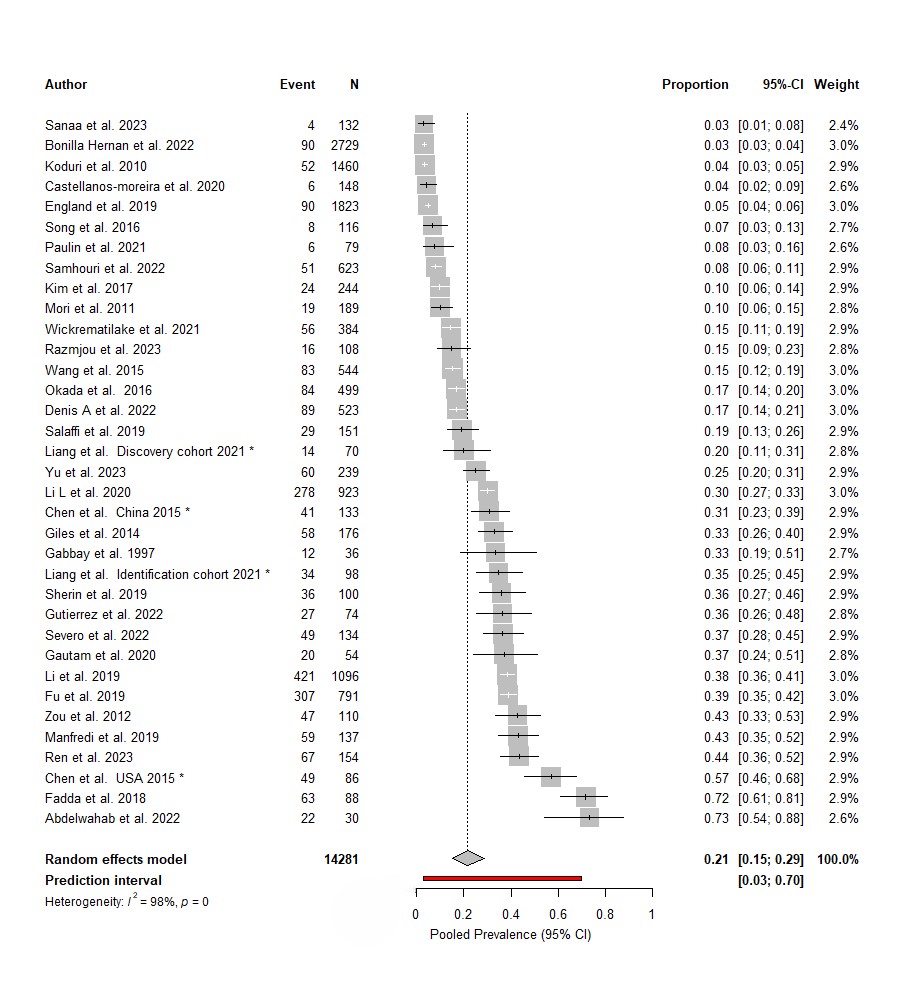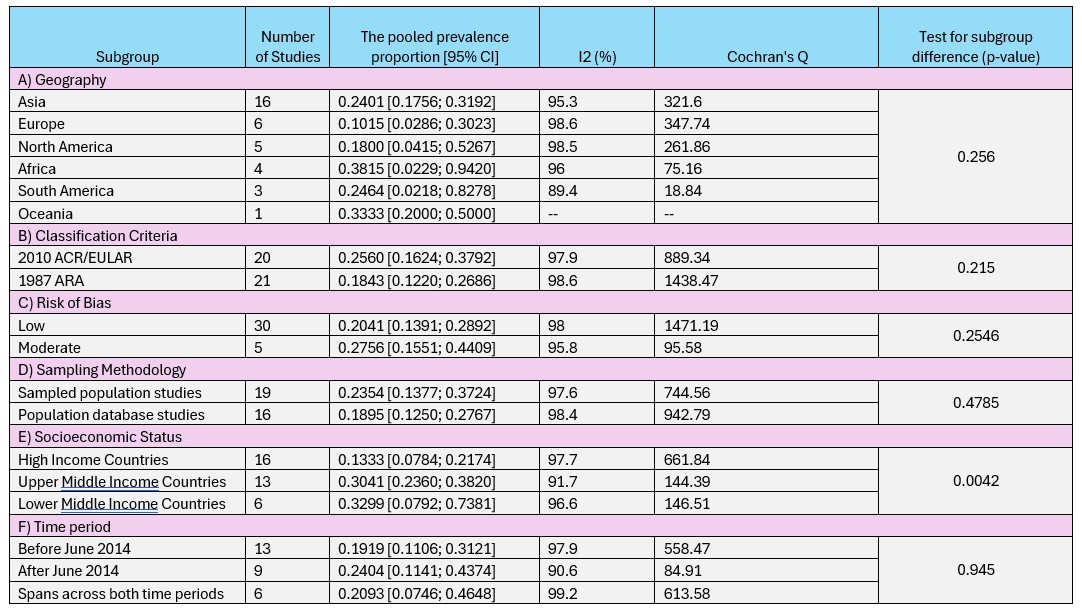Session Information
Session Type: Poster Session A
Session Time: 10:30AM-12:30PM
Background/Purpose: Interstitial lung disease (ILD) is a common manifestation of rheumatoid arthritis (RA) that severely impacts the health outcomes of RA patients. Despite this, the prevalence and aetiology of ILD among patients with RA (RA-ILD) is still unclear. This study aims to review the literature and estimate the global pooled prevalence of RA-ILD using population-based studies. The influence of geography, classification criteria, socioeconomic status, smoking and DMARD use on the prevalence of RA-ILD will be explored to understand the aetiology and identify risk factors associated with this condition.
Methods: A systematic review was performed according to the PRISMA 2020 and the Joanna-Briggs Institute guidelines. Studies published between January 1980 and February 2024 were sourced from Medline, EMBASE, Cinahl, Google Scholar, Web of Science and Proquest Central and screened for eligibility. The Hoy et al. risk of bias tool was used to appraise the quality of included studies. A random-effect meta-analysis model was used to produce pooled prevalence estimates. The potential between-study heterogeneity was identified using sensitivity and subgroup analyses, correlation analyses and meta-regression. Publication bias was assessed using the Eggers and Begg-Mazumdar tests.
Results: 33 studies were included in this meta-analysis containing 14281 patients (2371 RA-ILD patients and 11910 RA controls). The global pooled prevalence of RA-ILD was 21.38% (95% CI: 0.1542 – 0.2886), with a significant heterogeneity of I2 = 98%. The prevalence estimates of ILD patterns: usual interstitial pneumonia and non-specific interstitial pneumonia were 11.01% and 6.86% respectively. Across subgroup analyses, Africa had the highest RA-ILD pooled prevalence with an imprecise estimate of 38.15% (95% CI: 2.29 – 94.2) and Europe had the lowest prevalence of 10.15% (95%CI: 2.86 – 30.23). When categorised by socioeconomic status, the prevalence of RA-ILD was lowest in high-income countries and vice versa. Cohorts with a higher prevalence of smokers and DMARD use were correlated with a higher prevalence of RA-ILD. However, other risk factors like age, gender and RA disease duration did not have a clear association. Based on meta-regression, the risk factors identified in this study accounted for 46.38% of the heterogeneity. The biggest limitation of this study lies in the heterogeneity of results resulting in wide confidence intervals and some publication bias. Certain subgroups like participants from Oceania and low-income countries are underrepresented in our study.
Conclusion: According to our meta-analysis, the global prevalence of RA-ILD is 21.38% with a higher risk of RA-ILD in smokers and in regions with lower socioeconomic status like Africa and South America. This information can aid clinicians in identifying subsets of patient populations with a higher risk of RA-ILD and highlights the need for screening programs to stratify and treat these patients earlier. Lifestyle modifications like smoking cessation should also be encouraged. Given the high heterogeneity of results, further research investigating the risk factors of RA-ILD and a greater representation of Oceania is needed.
To cite this abstract in AMA style:
Prasanna H, Inderjeeth C, Nossent J, ALMUTAIRI K. The Global Prevalence of Interstitial Lung Disease in Patients with Rheumatoid Arthritis: A Systematic Review and Meta-analysis [abstract]. Arthritis Rheumatol. 2024; 76 (suppl 9). https://acrabstracts.org/abstract/the-global-prevalence-of-interstitial-lung-disease-in-patients-with-rheumatoid-arthritis-a-systematic-review-and-meta-analysis/. Accessed .« Back to ACR Convergence 2024
ACR Meeting Abstracts - https://acrabstracts.org/abstract/the-global-prevalence-of-interstitial-lung-disease-in-patients-with-rheumatoid-arthritis-a-systematic-review-and-meta-analysis/


